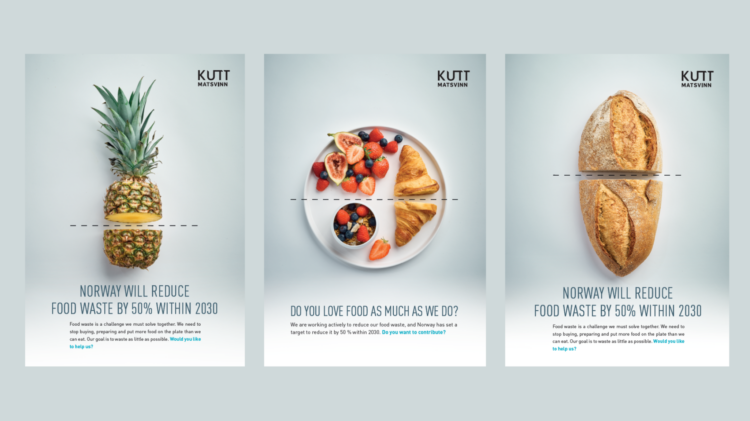"KuttMatsvinn Servering" for The Food Service industry
"KuttMatsvinn Servering" is a collaboration between Matvett and actors in the food service industry with the goal of halving food waste by 2030 in line with the UN Sustainable Development Goals and The Negotiated Agreement on Food Waste Reduction, which serves as Norway's framework for this work and involves collaboration between authorities and the entire food value chain.

"KuttMatsvinn Servering" is a continuance from and build on the work from The KuttMatsvinn2020 project (2017-2020) which put food waste reduction on the agenda in the food service industry and demonstrated that effective reduction measures at food service establishments can yield positive results for both profitability and the climate/environment. The project helped build a solid platform for companies with tools for food waste registration, employee training, and tips for prevention and reduction measures.
15 percent food waste reduction
The participants in the project, representing over 2500 food service establishments, collectively achieved a 15 % reduction in food waste, equivalent to 390 tons, resulting in savings of 24 million NOK and 1400 tons of CO2 emissions. Matvett continues to recruit and work to assist the food service industry in implementing effective measures towards 2030 and has entered into intention agreements with key actors and procurement chains in the industry.
Tools for the particapants in KuttMatsvinn Servering
- Tools for measurement and reporting
- Tools for employee training
- Graphic profile and communication activities towards employees and guests
- Best practice examples for inspiration and measures contributing to the work
- Forums for exchange of experiences and inspiration
Most of the tools are available in English such as an and communication materials towards guests to equip food industry employees with knowledge and skills for effective food waste reduction. Our online e-learning course for employees; "Reducing Food Waste: Strategies and Implementation", provides comprehensive insights, practical examples, and step-by-step guidance to drive meaningful change within organizations. In 2023 over 250 employees got their personal diploma for completing the course.
Extensive toolkit
Our toolkit includes user-friendly Excel sheets for easy measurement and registration of food waste, allowing to track and analyze progress. Additionally, we provide a detailed guide on safe food reuse, ensuring that surplus food is repurposed responsibly and sustainably. Moreover, we offer a range of informative materials, such as posters and communication guides, to raise awareness among staff about the importance of reducing food waste. These materials are designed to inspire and engage teams, empowering them to actively participate in the fight against food waste.
Gamification
Matvett has also developed a mobile game called "KuttMatsvinn Servering" that further enhances learning and engagement. To play the game, simply download the Attensi Skills app from your app store and add "Matvett servering" under the company name. Register with your name and mobile number, and enter the provided code. Through the game, you can immerse yourself in the journey of becoming a food waste expert and learn valuable strategies to combat food waste.
Matvett's English-language tools are invaluable assets for businesses in the food industry seeking to address the challenge of food waste. By utilizing these tools, companies can measure their waste, access practical guidance, receive specialized training, and actively contribute to creating a more sustainable and resource-efficient future.
Communication with guests
Matvett has developed a communication concept to raise awareness among guests about the challenges of food waste. The main objective is to encourage guests to make sustainable choices, such as ordering smaller portions if they are not very hungry, choosing side dishes that suit their preferences, and being offered the option to take leftovers home in a Goodiebag without being prompted. The desired impression is a guest who is satisfied with their own and the establishment's efforts for the environment and resource usage. The campaign is visible through short films on social media, posters and signs on tables, and Goodiebags for guests' leftovers.